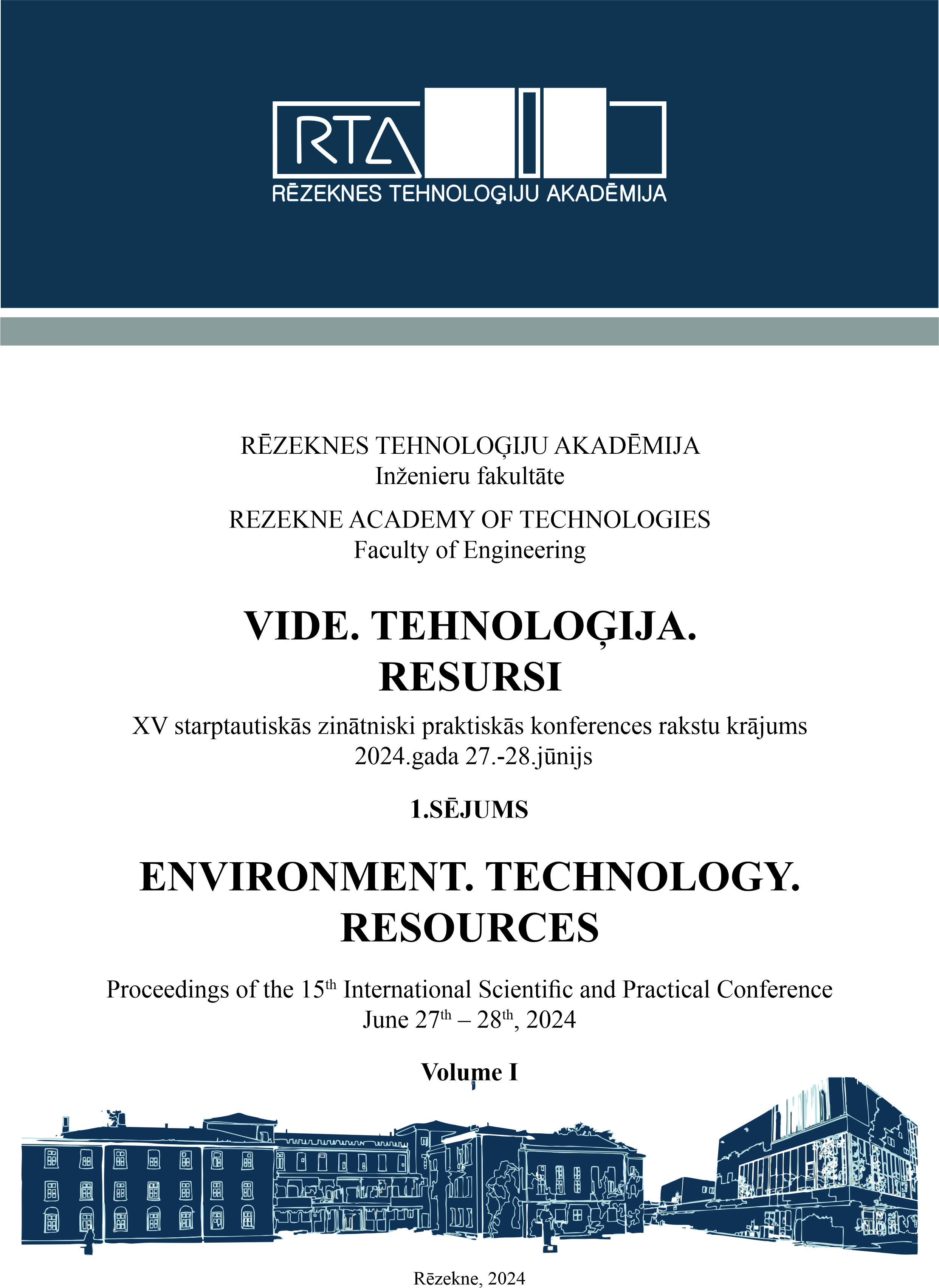PREREQUISITES FOR THE ESTABLISHMENT OF THE BALTIC-BLACK SEA UNION
DOI:
https://doi.org/10.17770/etr2024vol1.7962Keywords:
security, defence, military-economic cooperation, Baltic-Black Sea UnionAbstract
The emergence of new challenges and threats in the modern world raises the issue of creating alliances and sub-alliances that could ensure security issues in the Baltic countries and Eastern Europe as a whole. This, in turn, requires the definition of a new security system, built taking into account regional interests and new approaches to the system of collective provision of stable development. Global institutions in the context of new military conflicts show their inability to make decisions or their unwillingness to define new frameworks and conditions of security. Based on this, it seems important to form a new regional sub-alliance in Europe to ensure security and interpret the Trimoria alliance. The formation of military alliances leads to increased interaction between countries both in the military sector and in the economy as a whole. Within the alliances, a practically unified security system is formed, which works on the same standards, strengthening control over trade policy and forming a common control within the framework of military policy or security policy and protection from real or potential threats.
References
Fearon James D., Bargaining, “Enforcement, and International Cooperation”, International Organization 52(2), 1998, pp. 269–305.
Tollison Robert D. & Thomas D. Willett, “An Economic Theory of Mutually Advantageous Issue Linkages in International Negotiations”, International Organization 33(4), 1979, pp. 425–449.
Hoekman, Bernard M., “Determining the Need for Issue Linkages in Multilateral Trade Negotiations”, International Organization 43(4), 1989, pp. 693–714.
Morgan, T. Clifton, Untying the Knot of War: A Bargaining Theory of International Crises. Ann Arbor, MI: University of Michigan Press, 1996.
Davis, Christina L., “International Institutions and Issue Linkage: Building Support for Agricultural Trade Liberalization”, American Political Science Review 98(1), 2004, pp. 153–169.
Tollison, Robert D. & Thomas D. Willett, “An Economic Theory of Mutually Advantageous Issue Linkages in International Negotiations “, International Organization 33(4), 1979, pp. 425–449.
Conybeare, John A. C., “Public Goods, Prisoners’ Dilemmas and the International Political Economy”, International Studies Quarterly 28(1), 1984, pp. 5–22.
Snyder, Glenn H., Alliance Politics. Ithaca, NY: Cornell University Press, 1997.
Taylor, Michael, The Possibility of Cooperation. Cambridge: Cambridge University Press, 1987.
Axelrod, Robert, The Evolution of Cooperation. New York: Basic, 1984.
Axelrod, Robert & Robert O. Keohane, 1986. ‘Achieving Cooperation Under Anarchy: Strategies and Institutions’, in Kenneth A. Oey, ed., Cooperation Under Anarchy. Princeton, NJ: Princeton University Press, 1986, pp. 226–254.
McGinnis, Michael D., “Issue Linkage and the Evolution of International Cooperation”, Journal of Conflict Resolution 30(1), 1986, pp.141–170.
Abbott, Kenneth W. & Duncan Snidal, “Hard and Soft Law in International Governance”, International Organization 54(3), 2000, pp. 421–456.
Leeds, Brett Ashley, Jeffrey M. Ritter, Sara McLaughlin Mitchell & Andrew G. Long, ‘Alliance Treaty Obligations and Provisions, 1815–1944’, International Interactions 28(3), 2002, pp. 261–284. http://atop.rice.edu.
Hurst, Michael, ed., Key Treaties for the Great Powers 1814–1914, Volume II. New York: St. Martin’s, 1972, pp. 846–852.
Wandycz, Piotr S., France, and Her Eastern Allies 1919–1925. Minneapolis, MN: University of Minnesota Press, 1962.
League of Nations, Treaty Series: Publications of Treaties and International Engagements Registered with the Secretariat of the League, vol. 154. London: Harrison, 1934.
Brawley, Mark R., Turning Points: Decisions Shaping the Evolution of the International Political Economy. Peterborough: Broadview, 1998.
Langsam, Walter Consuelo, The World Since 1914. New York: Macmillan, 1948.
Parker, R. A. C., Europe 1919–1945. London: Weidenfeld and Nicolson, 1969.
Albrecht-Carrie, Rene, A Diplomatic History of Europe Since the Congress of Vienna. New York: Harper and Row, 1973.
Helmreich, Jonathan, “The Negotiation of the Franco-Belgian Military Accord of 1920”, French Historical Studies 3(3), 1964, pp. 360– 378.
Kieft, David Owen, Belgium’s Return to Neutrality. London: Oxford University Press, 1972.
Marks, Sally, Innocent Abroad. Chapel Hill, NC: University of North Carolina Press, 1981.
Rothstein, Robert L., Alliances and Small Powers. New York: Columbia University Press, 1968.
Gathorne-Hardy, Geoffrey M., A Short History of International Affairs 1920–1938. London: Oxford University Press, 1938.
Andrew G. Long. Trading for Security: Military Alliances and Economic Agreements. 2006 Journal of Peace Research, vol. 43, no. 4, 2006, pp. 433–451. https://journals.sagepub.com/ doi/pdf/10.1177/0022343306065884
George, J., T. Sandler, NATO defense demand, free riding, and the RussoUkrainian war in 2022, Journal of Industrial and Business Economics (2022) 49, pp. 783–806. https://doi.org/10.1007/s40812-022-00228-y.
General oceanographic background of the Black Sea and the Sea of Azov, 2021. https://files.pca-cpa.org/pcadocs/ua-ru/ 04. %20UA%20Rejoinder %20Memorial/01% 20 Exhibits/ UA-01.pdf
List of European countries by Area. 2020. https://statisticstimes.com/geography/european-countries-by-area.php.
Downloads
Published
Issue
Section
License
Copyright (c) 2024 Sevdalina Dimitrova, Kaspars Kikste

This work is licensed under a Creative Commons Attribution 4.0 International License.



